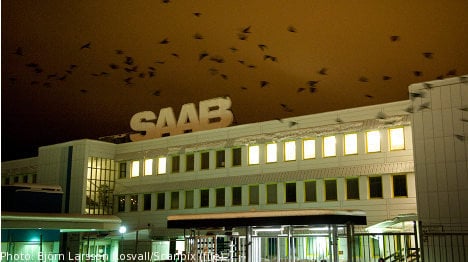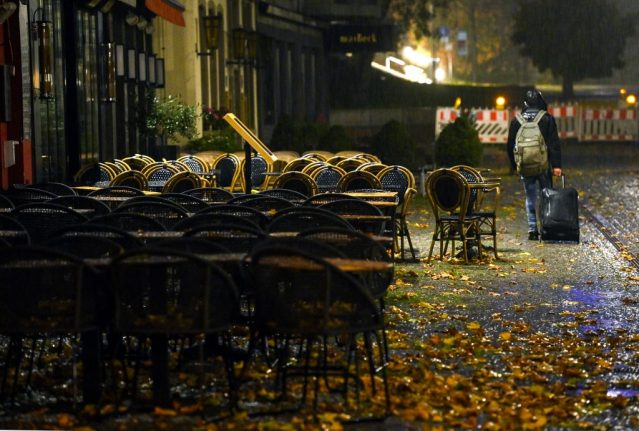The court ruled that the requirements of law had not been met and thus could not approve the application.
Judge Gunnar Krantz read out the district court’s decision:
“The court has concluded that there is not enough reason to believe that a company reorganisation would be successful. The company’s request is therefore rejected,” he said.
Saab has until September 29th to appeal against the ruling and chairperson and CEO Victor Muller said after the decision that the company “is not dead yet” and outlined plans to appeal.
Saab’s biggest union, IF Metall, said it “lamented” the decision, after having said on Wednesday that bankruptcy protection “could be a good solution.”
The company is now at the mercy of its creditors.
“If the company doesn’t find another solution, or if it doesn’t declare bankruptcy itself, we may have to do it ourselves in the coming days,” IF Metall chairman Stefan Löfven said in a statement.
Around 950 of the 1,000 members of white collar union Unionen now stand behind a bankruptcy petition, according to union lawyer Martin Wästfelt.
“We have a massive support from our members to act,” she said.
In early 2010, Saab was saved from bankruptcy by Dutch group Swedish Automobile, then called Spyker, which bought the brand from US car giant General Motors.
Swedish Automobile had said it is eagerly waiting for some €245 million in funding from Chinese partners Pang Da and Youngman to arrive.
Muller said Wednesday he was “very confident” the Chinese funds would come through and said the reorganisation request was especially aimed at allowing the company to find funding to hold it over until Chinese investments arrive.
Production at the company’s sole plant in Trollhaetten, in southwestern Sweden, has been halted entirely since June.
With no cash and stagnant sales, Saab, which employs 3,700 people, has stopped paying its suppliers and they have in turn halted deliveries since April.
Salaries have not yet been paid for August.
Meanwhile, the company has faced criticism for padding the pockets of Swedish Automobile’s management team, including handing Dutch chairman of the board Hans Hugenholtz a 633-percent raise in May.
The company owes about 150 million euros ($210 million) to its suppliers, according to Muller.
Asked by Swedish news agency TT whether Thursday’s decision spelled the demise of Saab, Energy Minister Maud Olofsson replied: “No, you can’t say that.”
“It’s clear that Saab is in a very precarious situation but it has been for quite some time. What the unions do now will be decisive. It’s of great concern that the employees have not received their wages,” she said.



 Please whitelist us to continue reading.
Please whitelist us to continue reading.
Member comments